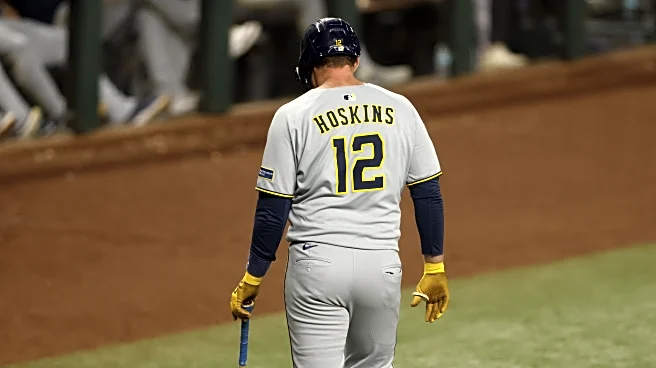Rapid Read • 8 min read
The U.S. Supreme Court's ruling in Dobbs v. Jackson Women’s Health Organization has overturned Roe v. Wade, effectively ending the federal constitutional right to abortion. This landmark decision, issued on June 24, 2022, allows states to impose their own abortion laws, leading to potential bans in numerous states. The case centered on a Mississippi law banning abortions after 15 weeks, which was previously deemed unconstitutional by a lower court. The Supreme Court's decision marks a significant shift in U.S. legal precedent, as it is the first time a fundamental right has been revoked by the Court.
AD
The Dobbs decision has profound implications for reproductive rights in the United States, potentially affecting millions of individuals. By removing federal protection, the ruling grants states the authority to regulate or ban abortions, which could lead to significant disparities in access to reproductive healthcare. This decision may force individuals in restrictive states to travel long distances for abortion services, impacting their health and socio-economic status. The ruling also sets a precedent for the potential reevaluation of other rights previously deemed protected under the Constitution, sparking debates about judicial power and individual freedoms.
In the aftermath of the Dobbs decision, many states are expected to enact or enforce stricter abortion laws, while others may seek to protect or expand access through legislation or constitutional amendments. Legal challenges are anticipated as advocacy groups and individuals contest state-level restrictions. The decision may also influence political dynamics, with reproductive rights becoming a pivotal issue in upcoming elections. Additionally, the ruling could prompt further examination of the Supreme Court's role in shaping social policy and protecting individual rights.
The Dobbs decision raises ethical and legal questions about the balance between state authority and individual rights. It may influence future legal interpretations of privacy and bodily autonomy, potentially affecting other areas of law. The ruling also highlights the evolving nature of judicial precedent and the impact of Supreme Court decisions on societal norms and values.
AD
More Stories You Might Enjoy











